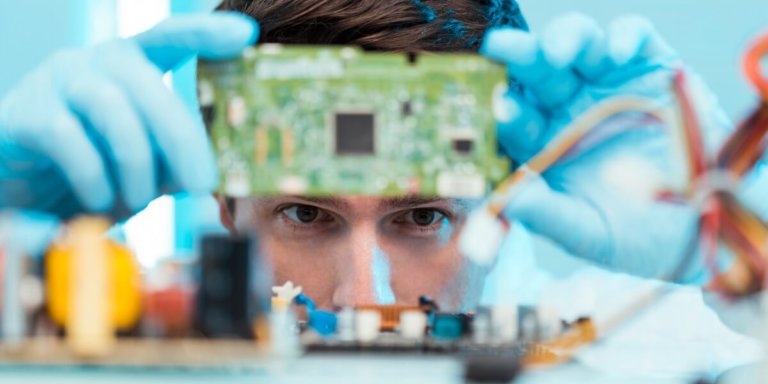
{{CODEfbclient}}
Be it creating ways for access to clean water, contributing ways to improve renewable energy for a more sustainable future or even creating 3D hearts, engineers are the future to solving many of the world’s global challenges.
The right education and training is necessary for future engineers to make breakthroughs in their chosen field, and Tel Aviv University’s (TAU) Faculty of Engineering is considered the go-to place for pursuing the unknown, creating future entrepreneurs and pushing the boundaries of knowledge.

Tel Aviv
Located in Tel Aviv – Israel’s ‘Silicon Valley’ – students who choose TAU study at the country’s largest and most comprehensive university with renowned faculty from around the globe. The university has a strong international network and is consistently ranked in the global top 20 for scientific citations and stands among Reuters’ Top 100 Most Innovative Universities 2018. QS World University Rankings also placed TAU among the top 20 universities worldwide for scientific impact.
To boot, the Faculty of Engineering is listed by the Times of London as one of the 100 best science universities in the world. It has approximately 3,000 students, 1,400 research students and 110 researchers who are trailblazers in their field. Students are trained to ask questions that haven’t been asked before and come up with ideas and inventions that could potentially change the world.
Diverse engineering programmes
As a globally recognised institution, TAU offers several engineering programmes across the schools and departments under the faculty.
These include the School of Electrical Engineering’s undergraduate and graduate degrees, as well as graduate degrees in the School of Mechanical Engineering and the Department of Biomedical Engineering, Industrial Engineering and Material Science & Engineering. A comprehensive graduate degree in Environmental Engineering is also offered.
The faculty is armed with strong credentials, so students can be assured they will be learning from the best. For instance, over half their professors are fellows of the IEEE (Institute of Electrical & Electronics Engineers) – the largest technical professional organisation in the field. Most professors have received their undergraduate, graduate and doctoral degrees from prestigious universities such as CalTech (California Institute of Technology), MIT (Massachusetts Institute of Technology), Yale University and Harvard University, among others.
International students looking to pursue an affordable undergraduate engineering course can opt for the four-year BSc Electrical and Electronics Engineering programme, which is taught in English. The programme is competitively priced – annual tuition fees start from US$4,550, considerably lower than those in the US, UK or Canada – without compromising on the quality of education received.
Under this programme, students are exposed to high level mathematics, physics and computer science courses, all the while learning in different specialisations and completing internships and projects with companies or laboratories.

Tel Aviv University
Students looking to focus their expertise in a specific area of engineering can choose from a variety of graduate degrees in English that the Faculty offers. For instance, sustainability is a pressing issue grabbing headlines today, and the ME school’s MSc in Environmental Engineering is ideal for those interested in careers related to water contamination, renewable energy, soil remediation, solid waste and air pollution, developing technical solutions required for controlling or reducing pollution that tie in with legislation, economy, society and politics.
The School of Electrical Engineering, the largest of its kind in Israel, focuses on prominent research areas such as micro- and nano-technologies, optical communication, devices, information theory, image processing, plasma science and more.
Meanwhile, some of the topics being studied and developed in Mechanical Engineering, such as nanotechnology, robotics, alternative energy sources and bioengineering, are expected to contribute to our quality of life, economy and security. Industrial engineers are leading the way with decision theory, information technologies and computerised manufacturing systems.
Biomedical Engineering is quickly growing with its research in biofluids and biomechanics, vision, hearing, sensory communication, among others. Lastly, Material Science and Engineering is TAU’s latest addition with quality work in material science, biomaterials, composite materials and more. One of TAU’s recent major medical breakthrough includes “printing” the world’s first 3D vascularised engineered heart using a patient’s own cells and biological materials.
A world without borders
Faculty prowess and stellar academic programmes aside, becoming a student at this public research university also means the chance to engage in work that extends beyond one’s local community. For instance, Engineers Without Borders, a delegation of students from the Faculty of Engineering, have gone to Arusha, a city in Tanzania, where they have organised and planned a project for the solar system for the local clinic, in addition to maintaining and expanding the water system built by the previous expedition.
Meanwhile, both undergraduate and graduate students will have opportunities to network and be scouted by some of the world’s largest companies prior to graduation under the faculty’s Industrial Affiliates Programme (IAP). IAP acts as a bridge between the faculty and the hi-tech industry, providing a platform for collaboration in various aspects such as in R&D, graduate and undergraduate projects, student recruitment, industrial services, initiation of technology transfer processes (led by RAMOT) and teaching in practical orientation, among others. Blue chip companies such as Apple, Samsung and Amazon come to TAU’s engineering campus yearly to promote their job openings, organise interviews and recruit from the university.
It’s clear that TAU has a lot to offer to prospective students.
So, if you like non-stop discoveries, want to work alongside peers from around the globe and spend your time learning from top start-ups and technology companies, make TAU your chosen study destination. Contact them today!
Follow Tel Aviv University on Facebook, Twitter, Instagram and YouTube
Liked this? Then you’ll love…
EMEA: Where electrical engineers spark innovation
Stay relevant with a degree in electrical engineering from Tampere University







